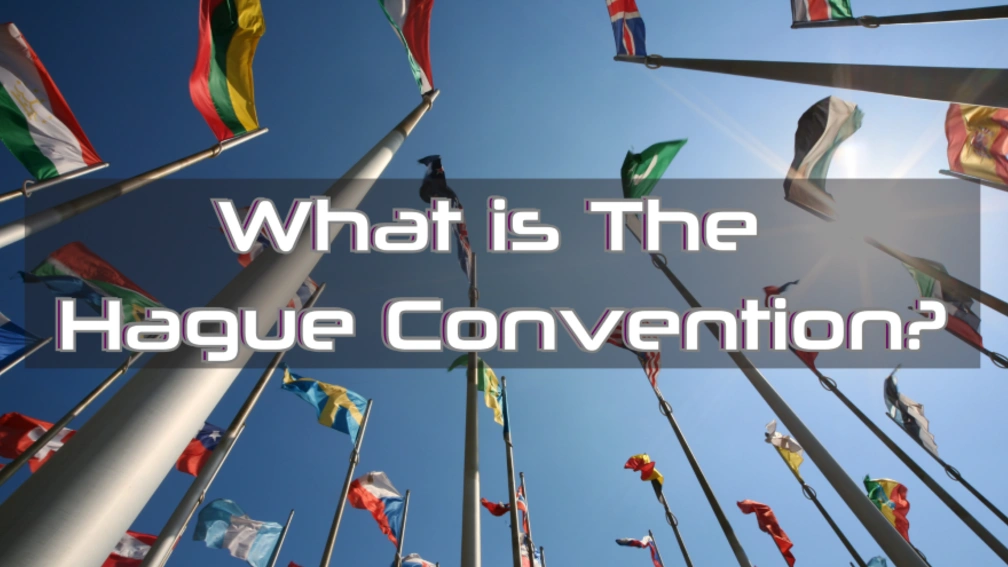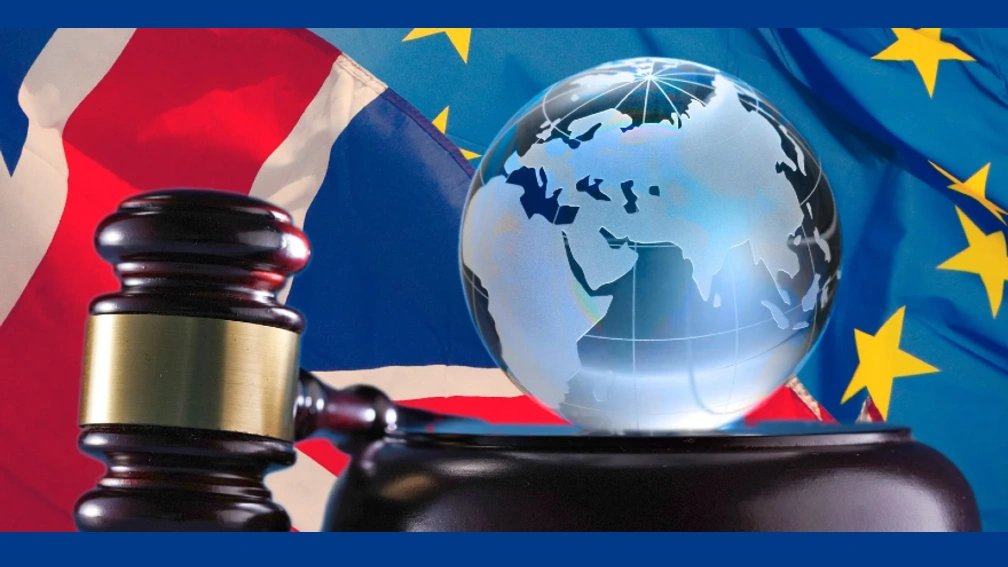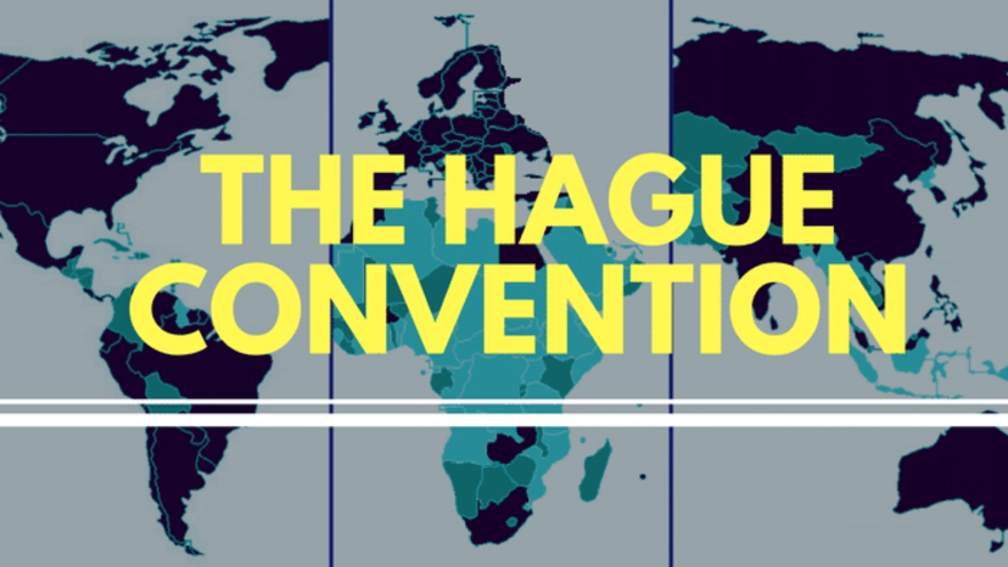When people move, work, study, or do business across borders, they often need to prove who they are or what they’ve done. That’s where documents come in, such as birth certificates, school diplomas, contracts, and more. But how can one country trust a document from another? That’s the problem the Hague Convention set out to fix. This post looks back at how the treaty changed global paperwork through something called an apostille certificate, and why it still matters today.

What Is the Hague Convention?
The Hague Convention is a treaty between countries. It was signed on 5 October 1961. The aim was to simplify the way foreign public documents are checked and accepted. Before this treaty, getting documents from one country accepted in another took time, money, and many steps. This convention made that process easier. Instead of going through long checks at the embassy, people could get an apostille certificate. That paper proves the document is real and legal.
Why Was it Created?
The Hague Convention was created to solve a simple problem: too many steps in the legalisation of documents. People moving between countries, doing business, or applying for school faced delays. Legalisation of documents was slow, confusing, and expensive. Each embassy had its own rules. So, countries agreed to one rule – the convention of 5 October 1961. With one system, countries could issue the apostille, which saved time and effort. This helped both people and governments.
The Rise of International Legalisation Needs
As the world changed, more people started travelling, studying, and working abroad. That led to a rise in documents for use across borders. Think about birth certificates, degrees, or power of attorney papers. These documents must be checked and trusted in another country. So, countries needed a simple way to certify that documents were real. The apostille process came at the right time. It became a tool to support this growing global movement.
What is the Hague Apostille?
The Hague Apostille is a special stamp or paper. It shows that a document is legal and real. This apostille certificate is attached to foreign public documents like school records, legal contracts, or court papers. It proves the signature and seal on the document are correct. Only certain offices, called Competent Authorities, can issue the apostille. Once added, the document doesn’t need more checks from the embassy. This system helps legalise and simplify how we use documents abroad.
The Purpose of the Hague Apostille Service
The main purpose of this service is to make things easier. It cuts out extra steps and helps people save time. If you want to use your document in another country that follows the treaty, you don’t need full consular checks. You just get an apostille. This helps people who need to send documents for school, work, marriage, or business. It’s also useful for lawyers and solicitors who help clients with cross-border paperwork.
Global Impact and Adoption of the Hague Apostille Convention
Since the treaty began, over 120 countries have joined the convention of 5 October 1961. It has become a trusted way to check foreign public documents. Countries like Kazakhstan, Armenia, and Serbia use it daily. It has helped millions of people. The apostille has made international life easier. From Moldova to Montenegro and beyond, governments now have one clear way to accept documents. It has built trust between nations and opened doors for global movement.
- Ease of doing business: The apostille system has made it easier to run a business across borders. Imagine opening a branch in Albania or Belarus. You would need to show official papers. The apostille certificate helps you avoid extra checks. This is key for saving time and money. It also gives confidence when signing international contracts. Now businesses can grow faster, with less red tape.
- Streamlined immigration and visa processes: Getting a visa used to take weeks. Now, with apostille services, it’s quicker. If you’re moving to Azerbaijan or Bosnia and Herzegovina, your documents must be checked. The apostille proves they are valid. This helps speed up visa and work permit approvals. You don’t need to wait on long embassy lines anymore. It’s a better process for both people and governments.
- International education and employment: Want to study or work in another country like Montenegro or Moldova? Your school or job might ask for official records. These include diplomas or certificates. With the apostille, those documents are ready for use. Schools and employers trust them because they’ve been certified. This means fewer delays and more chances to move forward in your life or career.
Challenges and Limitations
Even with all its benefits, the system isn’t perfect. Some issues still come up. Not all countries have joined the Hague Convention. Others have rules that limit what documents they accept. Fraud is also a concern. Sometimes, fake apostilles are made. These problems must be addressed to keep the system strong. While the apostille helps, extra checks may still be needed in certain cases.
- Non-member countries: Some countries never signed the Hague Convention. That means they don’t use apostille certificates. Instead, they ask for full legalisation of documents. This often involves trips to the consular office and the embassy. Countries like Canada or Vietnam need this. So, if your document is for one of these places, you must go through the full legalisation or attestation process.
- Document type restrictions: Not all documents can get an apostille. The rules say only public documents can be certified. These include court papers, birth certificates, or notarised statements. But some private documents don’t qualify. In those cases, you may need a solicitor to help. You might also need extra authentication steps. This limits how much the system can simplify the process for everyone.
- Fraud risks: Sadly, fake apostilles are a real problem. Some people try to forge documents. That’s why it’s important to check that the apostille was issued by a trusted Competent Authority. Many countries now post apostille details online to help people check them. Governments need strong rules to stop fraud. That way, we can keep trusting the apostille process.

Countries That Accept Apostille vs. Those That Don’t
| Hague Convention Members (Apostille Countries) | Countries that Require Full Legalisation (Non-Apostille Countries) | Countries that are Not Members but Work with Apostille-Only Documents |
| United Kingdom | Canada | Bahrain |
| United States | United Arab Emirates (UAE) | Oman |
| Australia | China | Saudi Arabia |
| Germany | Qatar | |
| France | Kuwait | |
| Italy | Libya | |
| Spain | Egypt | |
| Netherlands | Vietnam | |
| India | Jordan | |
| South Africa | Algeria | |
| Japan | Lebanon | |
| Brazil | Thailand | |
| Argentina | Indonesia | |
| Mexico | Malaysia | |
| Switzerland | Iraq | |
| Vietnam |
Hague Convention Members
(Apostille Countries)
Countries like the United Kingdom, United States, Australia, Germany, France, and Spain are all part of the Hague Convention. They accept apostille certificates. When you issue documents in one of these countries, they can be used in other member countries easily. The system helps simplify the legalisation of documents for work, school, and other legal matters.
Countries that Require Full Legalisation
(Non-Apostille Countries)
Countries like Canada, China, Qatar, Kuwait, Egypt, and Vietnam are not part of the convention. That means you must go through embassy checks to legalise your documents. These countries often have long steps for attestation and verification. If you plan to use your documents in these places, talk to your solicitor or a legal adviser.
Countries that are Not Members but Work with Apostille-Only Documents
Some countries, like Bahrain, Oman and Saudi Arabia, are not official members. Still, they often accept apostille certificates for certain document types. It’s best to check with a consular or embassy office in that country before you send your papers. This helps avoid delays and mistakes when using foreign public documents.
The Power of the Hague Apostille in Practice
The apostille certificate does more than save time. It opens doors. It lets people live, work, and grow in different countries. Whether you’re handling contracts in Belarus or selling a flat in Albania, the apostille helps make it happen. It proves that your document is real and accepted. The result? Less stress, more trust, and greater freedom to move and succeed.
Education and Qualifications Abroad
People who study abroad often need to prove their past school results. Universities in Kazakhstan or Armenia may ask for legalised diplomas. With an apostille, these documents are ready to use. You don’t need to go through extra checks at the embassy. This makes it easier to apply for school, scholarships, or work after graduation.
Marriage and Family Matters
If you’re getting married in another country, you may need to show your birth certificate or single status certificate. These documents must be legalised. The apostille process helps make that easy. It ensures your papers are accepted quickly. Whether you’re marrying in Serbia or planning adoption in Montenegro, apostilles can make these steps simpler.
Business Expansion and Contracts
Doing business abroad means handling legal documents like contracts or licences. These need to be certified. If you’re signing a deal in Moldova or Azerbaijan, you’ll want your documents ready. The apostille certificate helps ensure everything is in order. This protects your rights and supports business growth.
Real Estate and Property Transactions
Buying or selling property in another country? You’ll need legal documents like deeds or powers of attorney. These must be certified to be valid abroad. In places like Bosnia and Herzegovina or Albania, apostille certificates help speed up the process. They make sure your documents are trusted without needing full legalisation.
The Hague Convention’s Impact on International Law and Trade
The Hague Convention changed how countries work together. It set up a shared way to certify documents for use abroad. This supports trade, legal rights, and movement. It reduced the power of red tape. Countries now work faster and with more trust. The result? More people doing business, studying, or living abroad without delay.
Is the Apostille System Still Evolving?
Yes, the system keeps changing. Countries are finding better ways to issue the apostille and stop fraud. Some are trying digital apostilles. Others are updating how they share information between embassies and consular offices. These changes help the system grow stronger. The world is always changing, and the apostille must keep up.
Empowering Global Mobility Through Apostille Innovation
New tools like online checks and digital records are helping simplify the legalisation of documents. These changes mean faster results and fewer mistakes. People can now move, study, or work with less worry. Apostille innovation is giving people more power to act globally. It’s a quiet system – but one that moves the world forward.
FAQs
How does the Hague Convention affect individuals vs businesses in international contexts?
For individuals, the Hague Convention helps when applying for school, work, or marriage abroad. For businesses, it simplifies contract signing and company documents. Both save time and avoid the embassy. The apostille makes the process clear and faster for everyone. Whether you’re a student or a company owner, it supports smooth document use across borders.
How do member countries ensure security and prevent forgery of Apostilles?
Each country has a designated office to issue apostilles. These Competent Authorities follow strict rules. Many countries now keep online records to check valid apostilles. This helps stop fake documents and keeps the system trusted. Some use stamps, barcodes, or QR codes. These steps protect people and support honest document sharing.
What role does the designated Competent Authority play in the Apostille process?
The Competent Authority is the official office that can issue the apostille. They check that the document is signed by the right person and has the right seal. Then, they attach the apostille certificate. Without them, the document can’t be certified. Their job is key to making sure foreign public documents are trusted.
How has the digital transformation impacted the application of the Hague Convention?
Digital changes have made it easier to get and check apostilles. Some countries now issue apostilles online. Others let people search a database to check if the apostille is real. This saves time and helps stop fraud. It also supports faster document sharing between countries. Digital tools are making the process smoother.
Does the Hague Convention apply to translations of public documents or only the original documents themselves?
The Hague Convention only applies to the original public documents. If you need a translation, it might need to be certified in its own way. Some countries ask for both the original and the translation to be apostilled. It depends on the country. It’s best to ask a solicitor or check with a consular office first.




